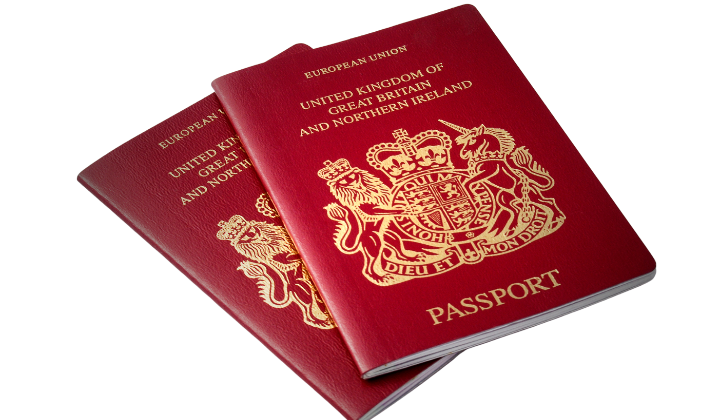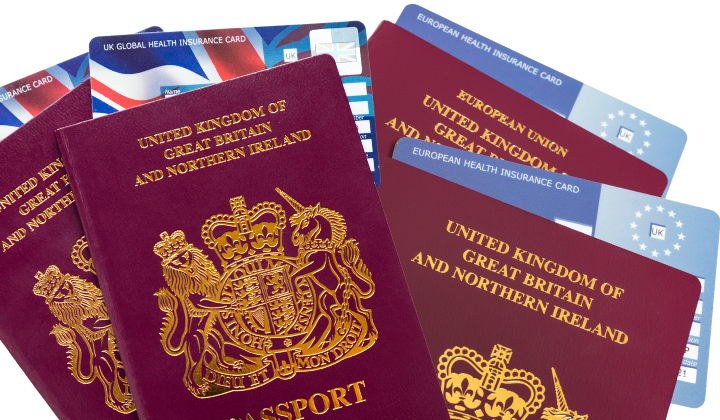by Sarah Forster
-16 September 2022
Blogs
by Sarah Forster
-16 September 2022
Blogs
There has been a lot of confusion and noise around travelling to Europe this summer. With Covid rules changing, and the UK’s departure from the EU causing further frustrations with passport validity.
We answer some of the most common questions to help ensure you have everything in place for your holiday to go as smoothly as possible!

To travel within the EU at the time of writing your passport must:
You can find out further information in our “How do I know if my passport is valid?” blog

No. You can travel to countries in the Schengen area for up to 90 days in any 180-day period without a visa. If your visit exceeds 90 days within the Schengen area, you will need to apply for a visa. You can find more information on Gov.uk.
Visit our dedicated Greece page in our Destination centre for more handy hints and tips
No. You can travel to countries in the Schengen area for up to 90 days in any 180-day period without a visa. If your visit exceeds 90 days within the Schengen area, you will need to apply for a visa. You can find more information on Gov.uk.
Visit our dedicated Spain page in our Destination centre for more handy hints and tips.
Over the summer the FCDO updated it’s travel advice for Spain, this included three potential documents you would need to show border control:
You can find out more information on the documentation by visiting the FCDO or in our “Spain’s 3 essential documents you may require upon entry” blog.
ETIAS is a new visa waiver system that the EU is aiming to bring into effect by the end of 2023. This will be similar to how the ESTA works for travel to the USA. Once this has been introduced all British passport holders will need to apply and pay for an ETIAS via an online system before travelling to the EU.

A GHIC (Global Health Insurance Card) replaces the EHIC (European Health Insurance Card). Both are free of charge and can be obtained on the NHS Website. The card can be used to access medically necessary state-provided healthcare when visiting an EU Country. The healthcare provider in the country you’re visiting will decide whether treatment is deemed as necessary.
You can use your card to access medically necessary state-provided healthcare in an EU country. This includes things such as emergency treatment and visits to A&E and treatment for long-term or pre-existing medical condition. As the healthcare provider in your destination country deems what is classed as necessary treatment, we always recommend an adequate Travel Insurance policy to provide peace of mind. You can find more information on EHIC/GHIC cards on the NHS Website or get a Travel Insurance quote here.

It is digital proof that a person has either:
Any vaccination, recovery or negative test certificate issued within the UK, will be accepted. These can be found on the NHS app. More information on the EU Covid Digital Certificates can be found here.
There are 24 in total within the EU, these are:

As the UK is no longer part of the EU, majority of mobile phone providers now have roaming charges to use your phone abroad. Check with your network provider for further details including any additional costs involved.
Our partner Broadband.co.uk explains more on data roaming in our “Your guide to data roaming within the EU” blog.
We strongly advise to check the Foreign Travel Advice page for the latest travel advice before you commence your holiday.
Get a quote in minutes for your European adventure with cover for all ages and hundreds of pre-existing medical conditions
Smart Luggage, the award-winning, real-time insurance policy for lost luggage is now available to buy from just £3, even if you already have your...
The countdown is on for Qatar World Cup 2022. Will this be our year? Ahead of this winter’s biggest sporting event, the FCDO have released 6 top...
Our summer survey found that 76% of people asked were still planning on finding money for their foreign holiday, despite the squeeze on consumer...
With 30 countries removing all covid restrictions over the last few months we take a look at which countries still require you to be tested or...